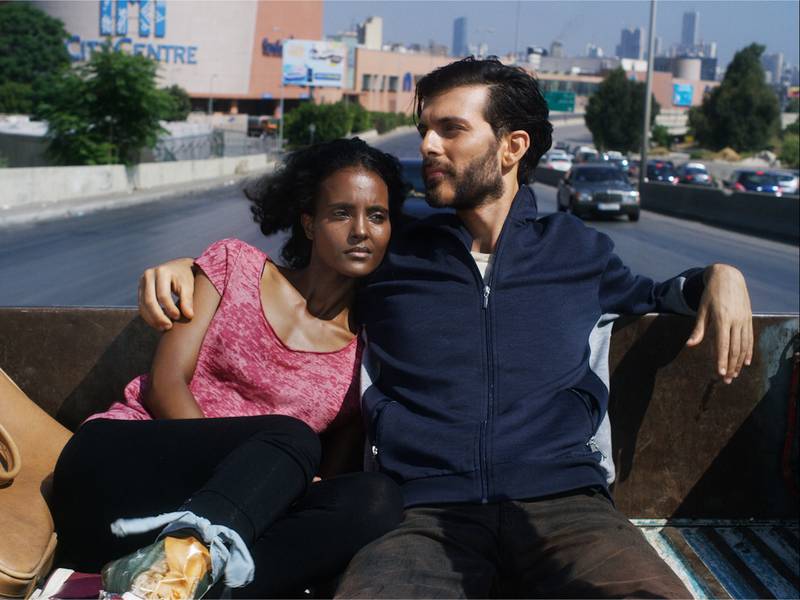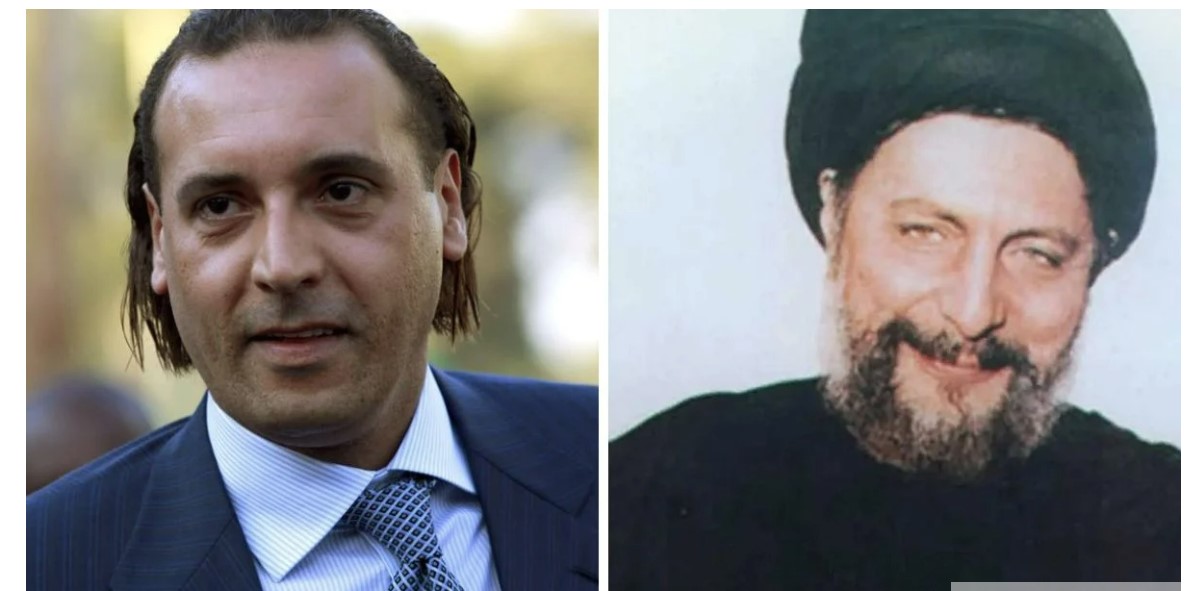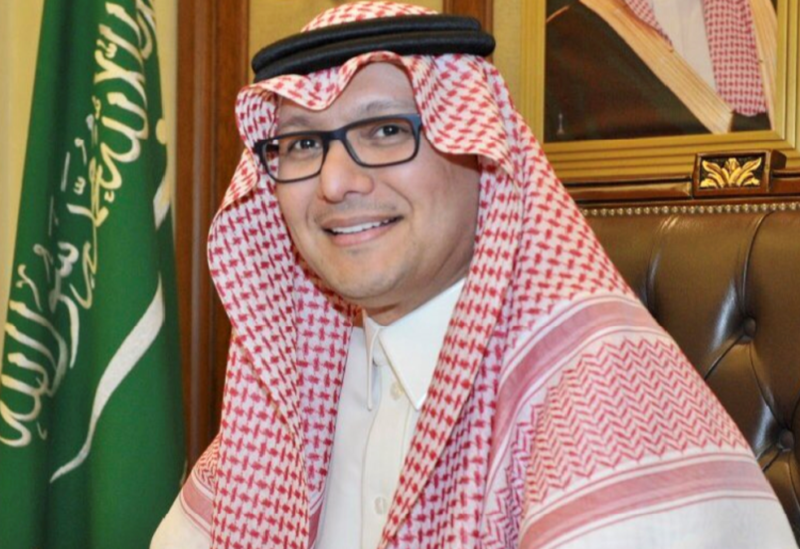
by thenationalnews.com -- James Mottram -- issam Charaf was only 9 during the 1982 Lebanon War. “The Israelis came in,” he tells The National over Zoom. “And the next day we’re having a walk in the woods, and I found something on the ground. I put it in my hand, and somebody told me: ‘Throw the ... thing!’” He did, but that didn’t stop this grenade from exploding, leaving him badly injured and in hospital for three months. “It was a near-death experience.” Nor was it the only such injury this journalist-turned-filmmaker has endured. The port explosion in Beirut on August 4, 2020, left him with 70 stitches in his back. “There’s hardly any place left [on my body] for a third accident,” he says, sighing. And yet Charaf, 49, has vividly ploughed these ghastly experiences into his second feature, Dirty Difficult Dangerous, which opens the Venice Days strand of the prestigious Venice International Film Festival on Wednesday.
Set in Beirut, this curious blend of romance, social commentary and science fiction follows two people in love: a Syrian refugee named Ahmed (Ziad Jallad) and Mehdia (Clara Couturet), an Ethiopian working as a housemaid for an elderly couple. When we first see Ahmed roaming the streets, he’s trying to sell scrap metal. Gradually, we see his scars and shrapnel emerging from his body, something Charaf knows from personal experience. Scripting the film, he began to see Ahmed’s situation as a metaphor for the trauma Lebanese people have faced over the years. “People are going crazy. And they don’t like anyone. So I thought this film could be [about] a kind of crazy situation where nobody loves no one.” The phrase “nobody loves no one” was even a potential title for the film, one he felt rang true. “The Lebanese don’t like the immigrants, the Syrians don’t like the Ethiopians, and vice versa,” he says, speaking about Lebanon's demographic tensions.

By David Sadler -- globeecho.com -- Well-informed Lebanese sources denied all information that spoke of the imminent release of Hannibal Gaddafi, son of the late Libyan leader Muammar Gaddafi, and stressed that “this misleading information coincides with the anniversary of the disappearance of Imam Musa al-Sadr and his two companions, to pressure the Lebanese authorities to release Gaddafi, the son who is arrested in Lebanon.” Since 2015″.
The sources admitted that “negotiations were launched months ago between Hannibal’s lawyer and the follow-up committee on the al-Sadr case, but they reached a dead end.” She revealed to Asharq Al-Awsat that the Lebanese side ” pledged to release Gaddafi the son, in exchange for providing accurate information about the fate of al-Sadr and his two companions and reaching them, but Hannibal insisted that only Abd al-Salam Jalloud knows al-Sadr’s fate, and that his father Muammar al-Qathafi did not meet the imam and that the latter And his two companions left Libya for Rome and disappeared there.” The sources asserted that “Hannibal is not only accused of concealing information, but is accused of being responsible for the fate of al-Sadr and his two companions.”
by saudigazette.com.sa — Saudi Gazette report BEIRUT — Saudi Ambassador to Lebanon Walid Bukhari has revealed that Saudi Arabia filed an official …

By Najia Houssari -- arabnews.com -- BEIRUT: The Kingdom rejects attempts to use Islam as a shield for political purposes fueling hatred, extremism, and terrorism, Saudi Arabia’s ambassador to Lebanon Walid Bukhari said on Monday. His remarks followed his meeting with Lebanon’s Grand Mufti Sheikh Abdel Latif Derian. Derian was one of the most prominent figures of national unity in Lebanon and the Kingdom was keen on respecting all Islamic and Christian figures and positions as they were entrusted with the unity, Arabism, and coexistence of Lebanon, he added. He also said the Kingdom supported promoting unity and rapprochement between the Lebanese. His visit to Dar Al-Fatwa coincided with criticism of a statement from Iran’s ambassador to Lebanon, Mojtaba Amani, during his visit to Derian last week. Amani described him as “the mufti of Sunnis” instead of his official title “the grand mufti of Lebanon.” According to a Dar Al-Fatwa source, it is the first time a diplomat has made such a mistake.
The faux pas came amid a time of high political tension in Lebanon between Hezbollah and its allies and those calling for Lebanon’s sovereignty and the exit of Iran. Political figures condemned the ambassador’s mistake, saying he had reduced Derian’s role “and his speech is meant to cause strife.” According to Lebanese laws, the grand mufti is the direct president of all Muslim scholars and the supreme reference for Islamic endowments. He performs all the powers granted to him under the laws and Islamic regulations. He also meets all local muftis across Lebanon to look into the religious and social conditions of Muslims in their regions and provide scholars with the necessary instructions.
Khazen History


Historical Feature:
Churches and Monasteries of the Khazen family

St. Anthony of Padua Church in Ballouneh
Mar Abda Church in Bakaatit Kanaan
Saint Michael Church in Bkaatouta
Saint Therese Church in Qolayaat
Saint Simeon Stylites (مار سمعان العامودي) Church In Ajaltoun
Virgin Mary Church (سيدة المعونات) in Sheilé
Assumption of Mary Church in Ballouneh
1 - The sword of the Maronite Prince
2 - LES KHAZEN CONSULS DE FRANCE
3 - LES MARONITES & LES KHAZEN
4 - LES MAAN & LES KHAZEN
5 - ORIGINE DE LA FAMILLE
Population Movements to Keserwan - The Khazens and The Maans
ما جاء عن الثورة في المقاطعة الكسروانية
ثورة أهالي كسروان على المشايخ الخوازنة وأسبابها
Origins of the "Prince of Maronite" Title
Growing diversity: the Khazin sheiks and the clergy in the first decades of the 18th century
Historical Members:
Barbar Beik El Khazen [English]
Patriach Toubia Kaiss El Khazen(Biography & Life Part1 Part2) (Arabic)
Patriach Youssef Dargham El Khazen (Cont'd)
Cheikh Bishara Jafal El Khazen
Patriarch Youssef Raji El Khazen
The Martyrs Cheikh Philippe & Cheikh Farid El Khazen
Cheikh Nawfal El Khazen (Consul De France)
Cheikh Hossun El Khazen (Consul De France)
Cheikh Abou-Nawfal El Khazen (Consul De France)
Cheikh Francis Abee Nader & his son Yousef
Cheikh Abou-Kanso El Khazen (Consul De France)
Cheikh Abou Nader El Khazen
Cheikh Chafic El Khazen
Cheikh Keserwan El Khazen
Cheikh Serhal El Khazen [English]
Cheikh Rafiq El Khazen [English]
Cheikh Hanna El Khazen
Cheikha Arzi El Khazen
Marie El Khazen